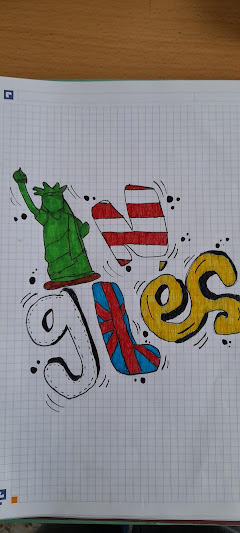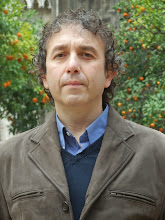WORD
ORDER: STRUCTURE of the ENGLISH SENTENCE
WORD ORDER is very important in English, the
usual order being:
Subject + Verb + COMPLEMENTS
(Indirect + Direct + How / Where / When)
He writes her a letter. We drove carefully to
Bristol. I have breakfast in the morning.
1) If a sentence has got both a DIRECT and an
INDERECT object, there are two possibilities:
I gave HER a present / I gave A PRESENT to her
2) Time expressions come at the end of the
sentence, or at the BEGINNING separated by COMMA:
He plays the piano every Thursday / Every
Thursday, he plays the piano
3) Never separate the verb from the object(s):
He PLAYS every Thursday THE PIANO WRONG
4) Adverbs of MANNER can come in many
positions, but not between the verb and the object:
She
opened the door SLOWLY / SLOWLY, She opened the door / She SLOWLY opened the
door / She opened SLOWLY the door WRONG
5) ALWAYS and NEVER cannot begin or end a
sentence:
ALWAYS she walks to school WRONG /
She walks to school NEVER WRONG
6) Adverbs of FREQUENCY and TIME EXPRESSIONS
have special rules:
FREQUENCY ADVERBS
USUALLY
OFTEN
SOMETIMES
SELDOM
RARELY
HARDLY EVER
NEVER (EVER)
They must be one single word (except hardly ever).
They are adverbs showing how often
the action of the verb is fulfilled.
They usually present three different positions:
1) If the sentence has a simple verb it
goes between subject and verb:
I usually eat at three o’clock. They never eat
meat
2) If the sentence has a compound verb
it goes between the first verb and the second one:
I can never remember his name. She has never
been to London
3) If the sentence has AM, ARE, IS,
WERE or WAS (NOT will be) it goes after them:
You are never on time. She is always late.
(BUT: I will always be yours)
TIME EXPRESSIONS
EVERY DAY / WEEK / MONTH / YEAR…
ONCE / TWICE / THREE
TIMES… PER / A
DAY / WEEK / MONTH / YEAR…
ON (DAY OF THE WEEK in plural) MONDAYS /
WEDNESDAYS…
They are time phrases (adverbials).
They are placed either at the
beginning (with commas) or the end of the sentence since they have more than
one single word:
On Saturdays, I go swimming
Every month, we go to the dentist’s
We play tennis twice a week


